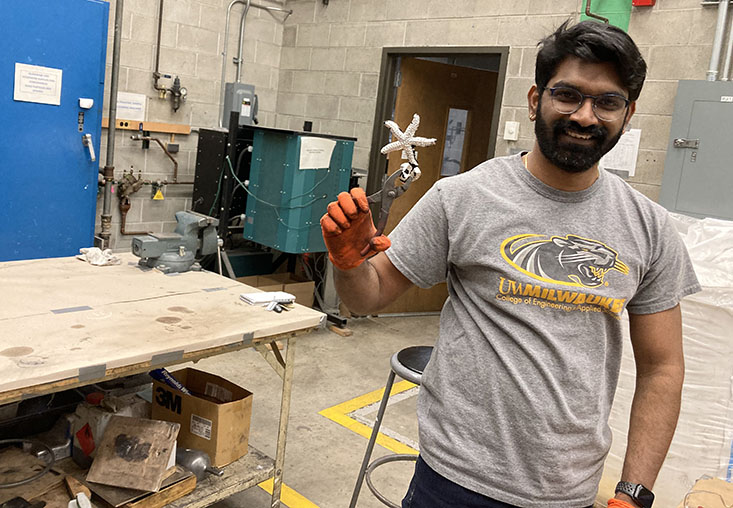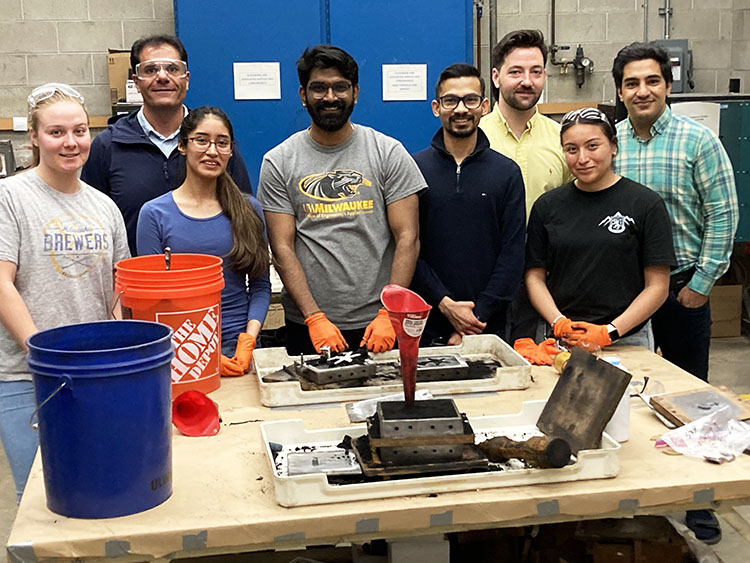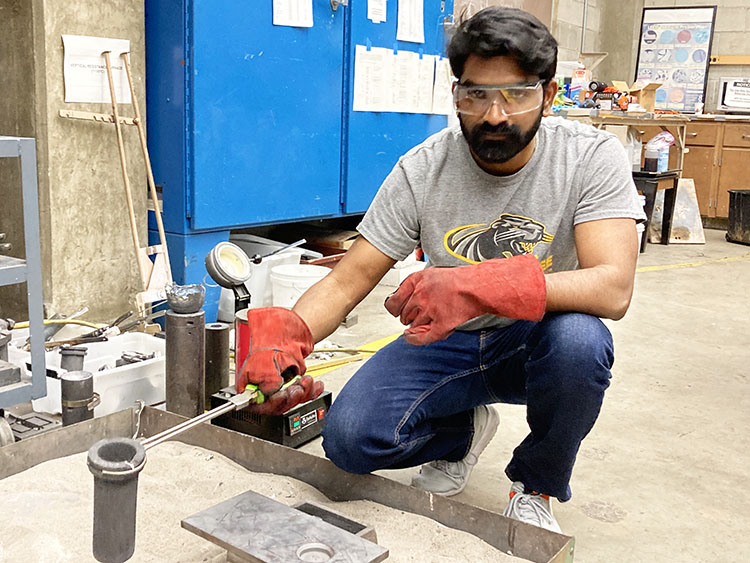Swaroop Behera is a strong believer in the value of student clubs and had been quite involved as an undergraduate and master’s student in materials science.
In 2019, the doctoral student was looking for an activity that could stir up interest in foundry education, while also involving the UWM student chapter of the American Foundry Society (AFS).
His idea ultimately sparked a passion for introducing the public to the metalcasting industry.
Metalcasting is a highly modern industry with ancient roots and is the backbone of the U.S. manufacturing economy. It is the process in which high-temperature molten metal is poured into a mold made of sand, metal or ceramic, to form geometrically complex parts.
Help from a national organization
Behera’s first step in was to work with the Foundry Educational Foundation (FEF), a nationwide organization whose mission is to work with universities to encourage and recruit engineering degreed talent to enter the metalcasting industry.
Since 1996, UWM has been part of the FEF university network and the organization has provided UWM with scholarships and program support, along with connecting students to jobs and internships in the industry.
FEF provided a table-top demonstration that shows all the steps needed to produce a metal souvenir from molten metal and a mold. Called Foundry in a Box (FIAB), the activity uses tin, which can easily be melted on a small stove, so it could be set up outside of the UWM Foundry Lab.

FIAB became a hit with UWM metalcasting students who, as a group, learned how to perform the demonstration and guide onlookers in creating their own metal souvenirs.
“We started doing FIAB at open houses for UWM freshman coming in, for Enquest, a camp for high school girls over the summer, Party on the Plaza and at other big events around campus,” Behera said.
A perfect show for middle and high schools
In 2021, Rohatgi, the FEF Key Professor at UWM, applied for and won the FEF’s Overture Grant, which allowed Behera and the UWM student organization to begin outreach to middle and high school students.
“With this, we began to think of different ways we could increase enrollment in materials science,” Behera said. “We bought supplies to put together FIAB sets that we could donate to middle and high schools. We got in touch with science teachers so they could bring in groups of high school students to show them materials science laboratories and have them experience foundry in a box.”
In 2023, the group engaged 95 students with FIAB, he said, almost the same number as 2021 and 2022 put together.
The FEF has been so impressed with these outreach efforts that the organization’s leadership created a graduate fellowship specifically for the UWM College of Engineering & Applied Science.
Behera was selected as the first recipient in recognition of the work he has done outside the demands of his own research and his duties as foundry lab manager. The fellowship is expected to pay $25,000 a year for three years.
“He embodies the mission of the FEF, especially now when the Baby Boomers are retiring and industry needs to replace that workforce,” said Maureen Gerard, director of resource development for FEF. “The foundry industry is robust, especially in Wisconsin. And foundries are very at the cutting edge of using new techniques and technology coming from research in areas like advance sensors and machine learning.”

“I believe the FEF outreach program at UWM will also help increase enrollment in the Materials Science Department in our College,” Rohatgi said. “That reflects the goals of both FEF and UWM, and Swaroop Behera played an important role in this effort.”
For his part, Behera said the credit is shared.
“I could not have done this by myself,” he said. “We had built the structure, and it was all of us together who made it happen.”
